Editors Note: This article is part of our Women’s Movement Series that curates articles written and supported by activists and advocates working to create a more inclusive, global women’s movement. It will run from October 2018 to January 2019. It seeks to amplify and highlight issues that need to be heard in our feminist movement.
The preamble to the Universal Declaration of Human Rights (UDHR) begins with the “recognition of the inherent dignity and of the equal and inalienable rights of all members of the human family is the foundation of freedom, justice and peace in the world.” From this language, we derive the bedrock principle of human rights that rights are inherent to us as persons and cannot be denied. Yet, time and time again, women’s rights are not considered inalienable or inherent to our dignity and are legislated away. An inclusive, global feminist movement is necessary to bring us closer to this principle.
We are still fighting against the arcane notion that women need a reason to exercise autonomy over their bodies; that we must say that a pregnancy was a result of rape or incest indoctrinates the idea that women are not humans worthy of dignity until their physical bodies have been violated. The idea that we must defend our bodily decisions, whether it is about our birth control, our gender identity or its outwardly expression, our decision to work and demand a living wage, to seek adequate medical care and reasonably priced medicines, or to simply demand an end to street harassment, perpetuates the idea that we are not equal members in society.
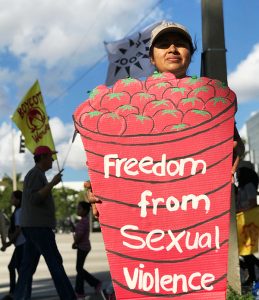
Many times the denial of our inherent dignity is more subtle. Attacks manifest as disbelief, questioning or denial of our humanity. This year has demonstrated that women’s voices are unheard, like Ashley Loring Heavyrunner who vanished from Montana’s Blackfeet Reservation June 2017, and whose family waited nine months before the FBI investigated. This year has demonstrated that, even when voices are heard, they’re questioned, like Dr. Blasey Ford. It has demonstrated that our bodies are not valued, made excruciatingly clear by Cyntoia Brown who is being forced to serve at least 51 years in prison after killing the man who bought and kept her as a sex slave.
The UDHR’s declaration of inalienable rights is not gendered; it does not dictate more rights for cisgender folks or men, or pronounce that women must earn their bodily autonomy. UDHR includes equal and inalienable rights of all members of the human family. No exclusions, no exceptions. The fact that, in reality, some bodies are viewed as more believable in allegations of sexual assault, that some bodies experience less police surveillance, that some bodies are seen as disposable or not worthy is an issue that showcases the compartments that women’s bodies are placed into in order to dehumanize, divide and silence. External conditions are forced upon certain women as justification for removing rights that have been deemed inalienable.
The United States’ Consistent Failure to Protect Women’s Rights
In a previous article, we discussed how the Supreme Court’s decision in Becerra jeopardizes Women’s Health. We wrote:
The ability of a woman to receive full, factual and easily attainable information about her reproductive rights is critical in not only receiving proper care, it is paramount to fully participating in social, economic and political life. The Supreme Court’s decision blatantly defies human rights laws. The consequences of restricting these rights is so significant, the United Nations included lack of access to abortion in their 2013 report on torture and inhuman treatment, noting that denial of abortion care is gender-based abuse. The Inter-American Commission on Human Rights (IACHR) recognizes that women who have historically been marginalized based on their race, ethnicity or economic status face the most barriers in access to information and, as a result, access to sexual and reproductive health.Access to information ensures that women can make free, autonomous decisions about not only their bodies, but about their lives and the future of their families.
We wrote on the change to our asylum laws with respect to survivors of gender based violence:
Domestic violence is one of the most common yet strikingly underreported demonstrations of discrimination against women. The chronic inability and failure of the United States legal system to protect women from their abusers is no secret. Domestic violence is the leading cause of injury to U.S. women between the ages of 15 and 44, and the Pan American Health Organization and Inter-American Commission of Women of the Organization of American States cite it as a serious violation of basic human rights.
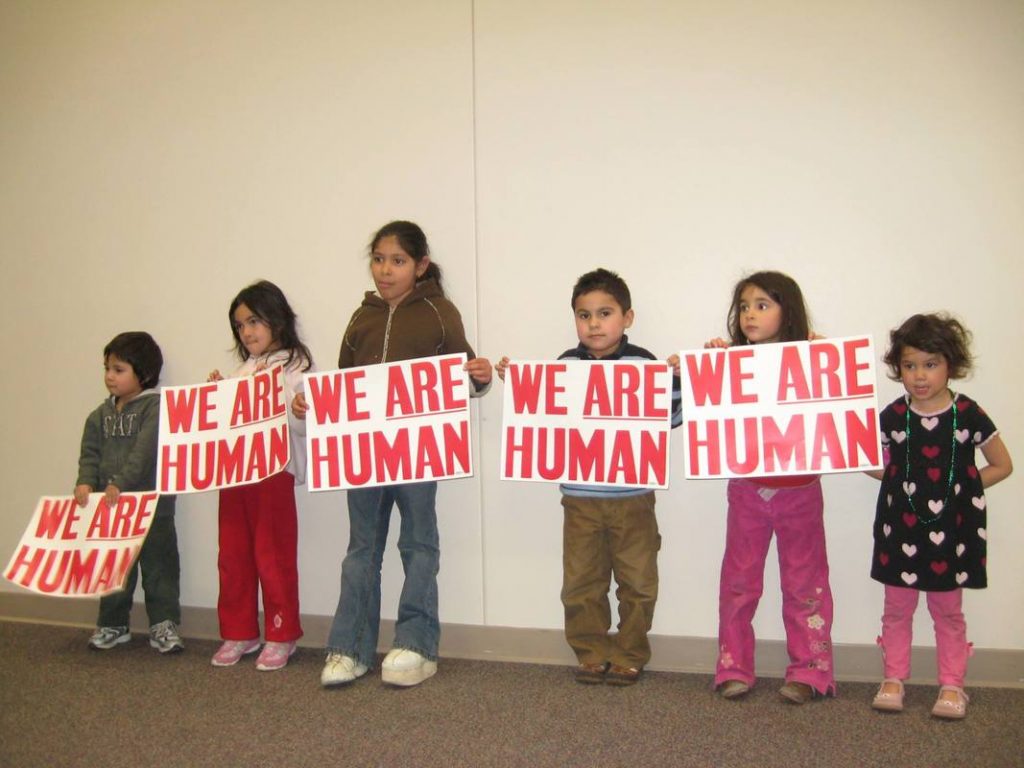
Recently, Trump sought to eliminate the word “gender” from UN human rights documents, and replace it with “woman” thereby making precarious the lives of gender non-conforming and trans-women. Last week, we highlighted the need to include trans rights in our global feminist movement:
Cisgender feminists’ failure to include transgender women in #MeToo narratives and fights perpetuates the dominant narrative that white cisgender and straight women are “more likely to be believed, validated, supported and made worthier victims when disclosing abuse and oppression.” When trans people speak out against their attackers, they face hostility or inappropriate assumptions about gender, bodies, and violence.
We have consistently highlighted how black women in the United States are ignored. “In all measures, including health, education, and economic security, black women in the United States fare worse than other women, as detailed by the Center for American Progress.”
In Addressing Racial Disparities in Maternal Health, Nadia Hussain writes:
“The U.S. is the most dangerous place to give birth in the developed world and more U.S. women are dying from pregnancy or childbirth complications today than in recent history. In fact, Black women, no matter their education or income level, are 3-4 time more likely to experience maternal mortality and morbidity, one of the widest disparities in all of women’s health. And the issue is not limited to maternal deaths. For every woman who dies in childbirth in the US, there are 70 women who nearly die. The sad reality is that every year in the U.S., 700 to 900 women die from pregnancy or childbirth-related causes, and some 65,000 nearly die.
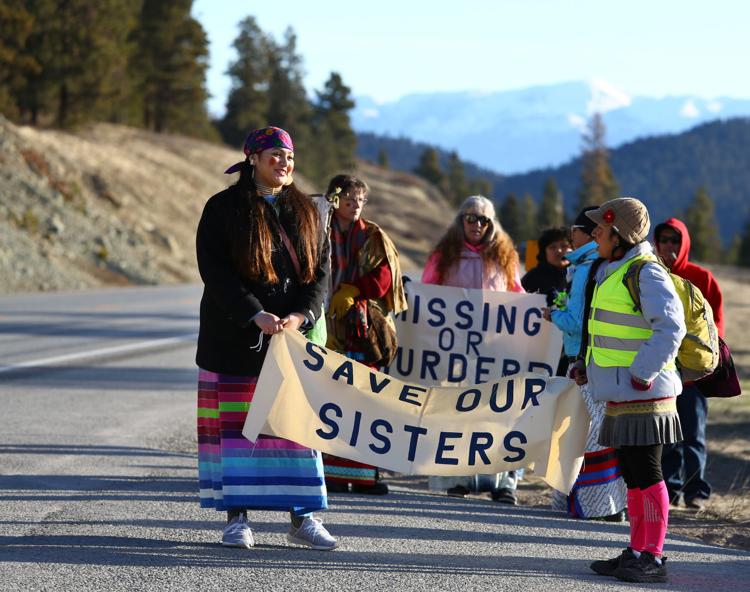
Indigenous women have spoken up against oppression and violence against them from both outside of their communities and within. The lack of reporting or police response to missing indigenous women is deafening. When researchers asked 71 US cities for numbers of missing or murdered Native American women, they received silence or incomplete data from 60%. Indigenous women disappear “from life, from media and from the data,” perpetuating the systems that allow society to deem these women disposable. Sen. Heitkamp, recently replaced by Rep. Kevin Cramer, applauded a new effort to track missing and unidentified persons, Savanna’s Bill, which just passed the U.S. Senate and would require the U.S. Department of Justice to consult with Native tribes while developing national law enforcement and justice guidelines.
Security and integrity of our persons and livelihood is critical in achieving economic equality and an adequate standard of living. When our physical bodies are threatened, our economic and financial bodies suffer. Understanding that economic justice is inherently and undeniably linked to gender is critical when addressing social and economic policies designed to promote development and success for the masses. Without addressing the precarious position of women, the economy will not thrive. Without addressing the need for bodily autonomy, the efforts put in place to achieve living wages, social security and collective bargaining will be hollow.
Universal Failure to Protect Women’s Rights
Outside of the United States, women’s rights are continually denied. Access to education is routinely infringed upon either from external forces such as war, or as a result of stigma or lack of hygiene products for menstruating individuals; child marriage, FGM and marital rape occur at staggering rates; and gender equality initiatives have seen unprecedented pushback. United Nations Population Fund (UNFPA) highlights that gender-based violence against women and girls is one of the most prevalent human rights violations in the world and estimates that one in three women will experience physical or sexual abuse in her lifetime.
Rebecca Adami reminds us that Article 16 on equal rights in marriage and to divorce “was pushed for especially by women representatives of the Commission on the Status of Women,” and its inclusion in the Universal Declaration on human rights is a “great achievement, as it clearly demonstrates that rights in the private are also human rights. Women’s economic political and legal status were dependent on her equal rights before, during and after marriage.”
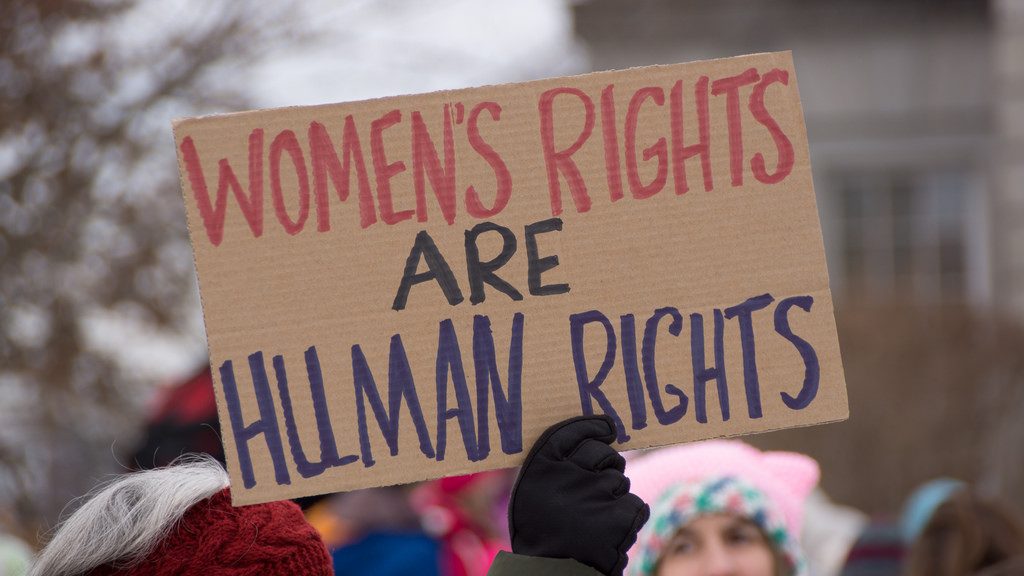
In Remembering Women in Rohingya Genocide, Shahana Hanif writes:
For women and girls, who make up over 60% of the Rohingya refugees in Bangladesh, escaping military violence also means escaping the trauma of sexual violence and rape at the hands of the army. Women’s bodies as a genocidal weapon requires a deeper investigation to understand the gendered implications of war and ethnic cleansings. Inflicting violence that leads to degradation and shame on women’s bodies, further deeming them disposable, has directly aided the ethnic cleansing of the Rohingya.
These methods of genocidal, cultural cleansing have shown up time and time again: systematic rape is “often used as a weapon of war in ‘ethnic cleansing,’” with reports of GBV in Cambodia, Cyprus, Haiti, Uganda and beyond. Multiple reports have described Uighur women being forced to marry Han Chinese, a method of cultural cleansing.
United Nations Population Fund Palestine has documented the gender based violence against Palestinian women. According to Palestinian Central Bureau of Statistics (PCBS) 2011 Violence Survey, an average of 37% of women are victims of GBV in Palestine; in the Gaza Strip, this percentage increases to 51%. Women in Palestine face multiple layers of violence and discrimination. This high rate of violence is attributed in part to occupation. Palestinian women, whose movement is already restricted by Israeli occupation, face additional hardships in seeking refuge from abusive husbands, boyfriends or partners. The humanitarian crisis compounds GBV and exacerbates discrepancies in educational, medical and economic access and opportunities.
A transnational look at race and gender by the UN International Decade for People of African Descent found that “When it comes to experiencing human rights, women and girls of African descent often face obstacles that are as much based on their race and ethnicity as it is their gender.” The fight for women’s rights must include the individual intersections that make women, women. It must include race, ethnicity, religion, gender expression and identity, socio-economic status and beyond. It must address and acknowledge that our rights as women include our human rights, too.
Human Rights are Feminist
There is a growing demand and necessity to reframe our struggles in the broader, macro level framework of human rights. Early history of Universal Declaration of Human Rights reveals that non-Western women from newly independent countries such as India, Pakistan and Dominican Republic were instrumental in its drafting and insisting that rights be predicated on human rights. Thus, feminist goals were in fact embedded in the conception of human rights, even though we have not been able to achieve women’s rights in practice.
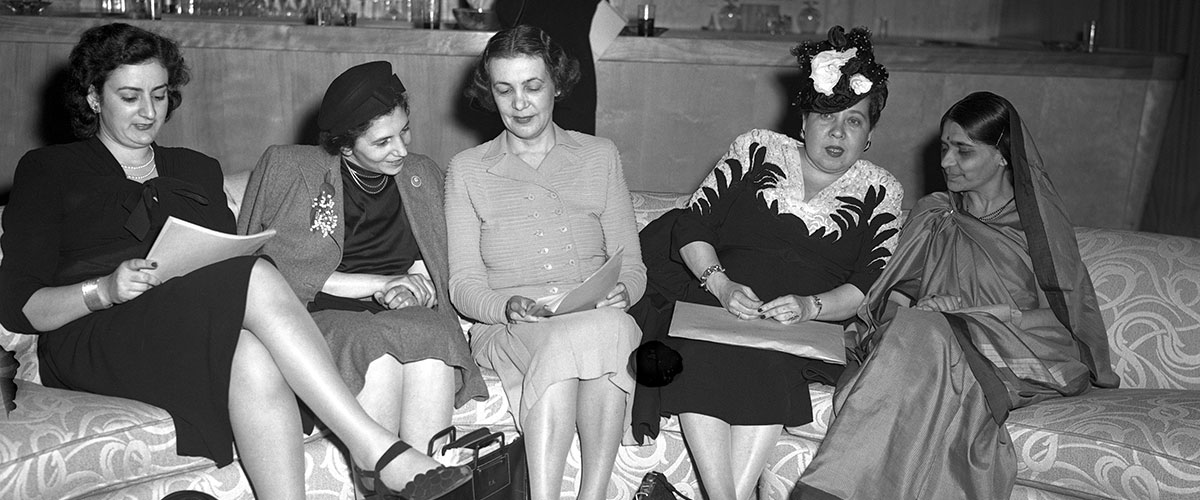
“Women’s rights are human rights” started well before Hillary Clinton’s speech in 1995. The Center for Women’s Global Leadership (CWLG) was deeply involved in the buildup towards the Vienna Conference on Human Rights in 1993. CWGL, after the first 16 Days of Activism Against Gender-Based Violence Campaign, called on the United Nations to place women’s human rights on the agenda for the Vienna conference. This was the first concerted effort to place women’s rights back within the larger foundation of human rights.
It is not enough for us to rest on the words of the Universal Declaration of Human Rights. We must demand accountability and radical restructuring of how women, femmes and gender non-conforming individuals move in a world dominated by patriarchy and, not just inequality, but active disenfranchisement. We must understand our natural rights as humans are inherent, we have capacity to reason, and we demand justice. The only way we can hold human rights to its ideals is through a global, inclusive unapologetic feminist movement. On this Human Rights Day, let us remember that failing to take a feminist agenda in pursuing human rights fails to change the power structures that continuously oppress women.




